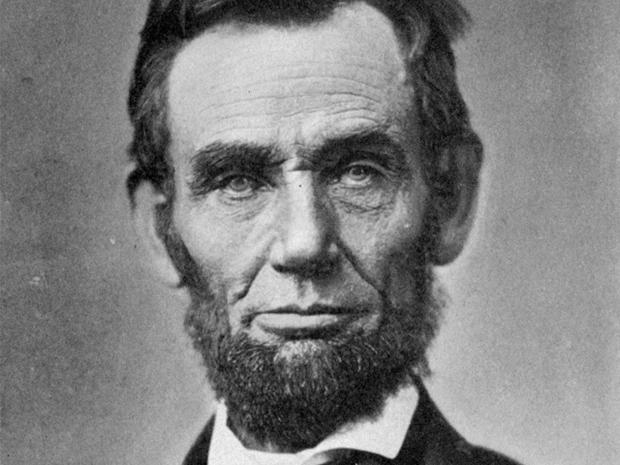Abraham Lincoln invented Facebook? Not so fast
(CBS News) Abraham Lincoln reportedly filed a patent for Facebook in 1845, at least that's what a viral hoax had the Internet believing this week.
Blogging consultant Nate St. Pierre decided to have a little fun with the Internet Tuesday by fabricating a story about how Lincoln was rejected for a patent in 1845 for a Facebook-like newspaper.
St. Pierre got a few bites and the story spread through the Internet and Twitter as a newly-discovered fact. Here's an excerpt of St. Pierre's fictitious experience at the Lincoln Museum in Springfield, Ill.
Lincoln was requesting a patent for "The Gazette," a system to "keep People aware of Others in the Town." He laid out a plan where every town would have its own Gazette, named after the town itself. He listed the Springfield Gazette as his Visual Appendix, an example of the system he was talking about. Lincoln was proposing that each town build a centrally located collection of documents where "every Man may have his own page, where he might discuss his Family, his Work, and his Various Endeavors."
He went on to propose that "each Man may decide if he shall make his page Available to the entire Town, or only to those with whom he has established Family or Friendship." Evidently there was to be someone overseeing this collection of documents, and he would somehow know which pages anyone could look at, and which ones only certain people could see (it wasn't quite clear in the application). Lincoln stated that these documents could be updated "at any time deemed Fit or Necessary," so that anyone in town could know what was going on in their friends' lives "without being Present in Body."
Internet dwellers are usually known for their fierce skepticism, yet somehow this rumor slipped through the cracks.
St. Pierre posted a explanation for the hoax on his blog Thursday.
"The original story is 100 percent fabricated. It's a tip of the hat to P.T. Barnum's celebrated hoaxes (or humbugs) and Abe Lincoln's tall tales. Absolutely nothing in it is true, except for the existence of the circus graveyard and the Lincoln Museum, both of which I would like to visit someday," St. Pierre said.
Why would anyone make such an effort to spread a fully fabricated story? St. Pierre said he was bored with the blog posts of that particular day and "wanted to do something fun" that would make him laugh. Most notably, St. Pierre wanted to draw attention to a consulting service he launched the following day.
Taking a jab at reporters, St. Pierre's final reason for the hoax was to "to illustrate one of the drawbacks to our 'first and fastest' news aggregation and reporting mentality, especially online."
This isn't the first publicity stunt under St. Pierre's belt. He was also behind the hijacking of Fast Company's Influence Project in 2010 - an exercise in searching for the most influential person on the Internet. St. Pierre and his followers sought to sway the results according to their opinion of who should be considered the most influential.
It should have been obvious that Lincoln attempting to patent an early version of Facebook was a hoax, but then again the Internet was up against a seasoned prankster.
